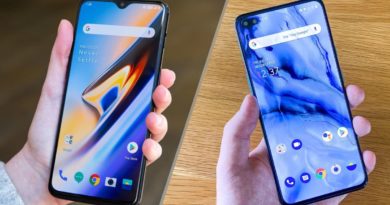New Samsung Galaxy S21 benchmarks show it’s more powerful than we thought
Fresh benchmarks for the Samsung Galaxy S21 have raised our hopes that it will be more powerful than we first thought.
Leaker Ice Universe posted a series of Geekbench 5 results for the Exynos 2100 version of the Galaxy S21, the model that will be available in Europe. These results show there’s been a significant boost in the chip’s test scores over the past couple months. And the results for the Snapdragon 888 chip that will power the U.S. version of the Galaxy S21 look pretty promising, too.
The phone isn’t fully named in the Geekbench listing, but the codename “SM-G996B” is known to refer to the European version of the Galaxy S21 Plus.
A trio of results posted on December 19 yield an average score 1,089 in the single-core test and 3,528 in the multi-core test. A benchmark of this same model performed back in September resulted in scores of 1,040 and 3,107, which works out as a 4% single-core increase and 13% multi-core increase in the past two months. This would suggest Samsung is optimizing its next-gen Exynos chip.
Exynos 2100 is getting closer and closer to 4000 points pic.twitter.com/UAEvmQlzr8December 20, 2020
To compare that to the Galaxy S20 Plus, the older phone managed 818 and 3,076 single and multi-core scores, respectively. But what’s more interesting is how the Exynos S21 compares to the Snapdragon 888-equipped S21.
We’ve seen unexpectedly low benchmark results for what’s reportedly a Galaxy 21 with the new Snapdragon 888 chip. These leaked benchmarks revealed a score of 1,120 in the single-core test and 3,319 for the multi-core result.
However, it’s possible that the Snapdragon 888 wasn’t properly optimized at that point back in November. Furthermore, chip maker Qualcomm has since posted Snapdragon 888 Geekbench results, recorded on a non-retail reference device, of 1,135 single-core and 3,794 multi-core.
These results are likely why Ice Universe mentions the number 4,000 in their tweet. If the Exynos 2100 could reach this milestone with its multi-core score, then there’d be no argument as to which was the better chip. For now, though, it looks like the Snapdragon 888 still has the upper hand.
For multiple Galaxy generations, the Snapdragon 8-series chips have beaten Samsung’s own Exynos silicon in overall performance. While the performance gap is never huge, it’s enough to make it clear that Qualcomm’s doing a better job at chipmaking than Samsung. And that means buying a Galaxy S21 in the U.S. gets you a better bang for your buck than buying one in Europe.
With the Galaxy S21 landing on January 14 according to the latest rumors, there’s still time for Samsung to tweak the software before launch. While it’s still likely that it will be unable to outperform the iPhone 12, which has the mighty A14 Bionic chip that outperforms the best Android phones, the S21 has plenty of other features to attract customers.
These include 120Hz displays on all models, and up to a 6.8-inch QHD display and a quad rear camera array featuring two telephoto cameras on the highest-tier Galaxy S21 Ultra model. With that in mind, there’s a good chance the Galaxy S21 could find its way onto our best phones list next year.


